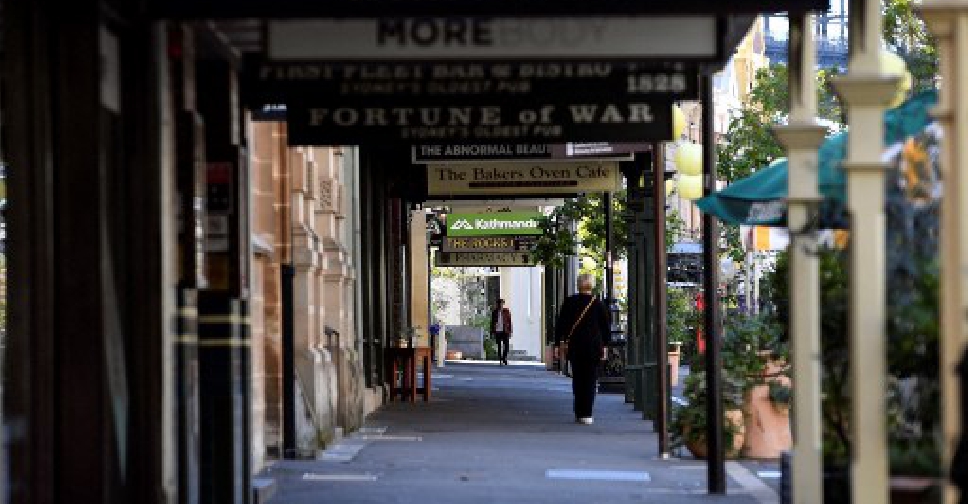
Sydney and some surrounding areas will enter a hard two-week COVID-19 lockdown on Saturday as authorities struggle to control a fast-spreading outbreak of the highly infectious Delta variant that has grown to 80 cases.
More than a million people in downtown Sydney and eastern suburbs of Australia's biggest city were already under lockdown due to the outbreak, but health authorities said they needed to expand the curbs after more infections were recorded, with exposure sites increasing beyond the initial areas of concern.
"Even though we don't want to impose burdens unless we absolutely have to, unfortunately this is a situation where we have to," said New South Wales state Premier Gladys Berejiklian.
Australia has been more successful in managing the pandemic than many other advanced economies through swift border closures, social distancing rules and high compliance, reporting just over 30,400 cases and 910 COVID-19 deaths.
But the country has struggled with its vaccination rollout, and states have been plagued in recent months by small outbreaks. These have been contained through speedy contact tracing, isolation of thousands of people at a time or snap hard lockdowns.
Saturday's lockdown in New South Wales will also include the regions of Blue Mountains, Central Coast and Wollongong, which surround Sydney.
Under the rules in place through July 9, people can leave home for essential work, medical care, education or shopping. The rest of the state will have limits on public gatherings and masks will be obligatory indoors.
"There was no point doing it for three days or five days because it wouldn't have done the job," Berejiklian told a news briefing.
On Saturday, the case of a worker at the Granites gold mine in the Tanami Desert of the Northern Territory prompted the territory's authorities to order the isolation of more than 1,600 people in three states who had had contact with the worker.
The mine, owned by Newmont Corp, was put into lockdown.

 Iranian President Raisi killed in helicopter accident, state media says
Iranian President Raisi killed in helicopter accident, state media says
 ICC prosecutor seeks arrest warrants for Israeli, Hamas leaders
ICC prosecutor seeks arrest warrants for Israeli, Hamas leaders
 Assange given permission to appeal against US extradition
Assange given permission to appeal against US extradition
 Israel intends to broaden Rafah sweep, Defence Minister tells US
Israel intends to broaden Rafah sweep, Defence Minister tells US
 New Taiwanese president calls on China to stop threats
New Taiwanese president calls on China to stop threats




